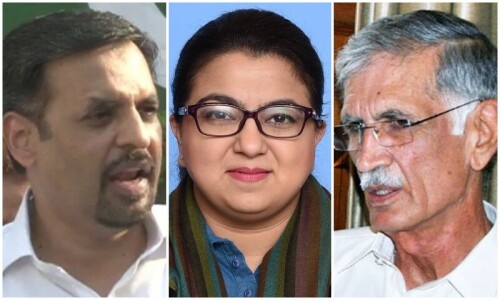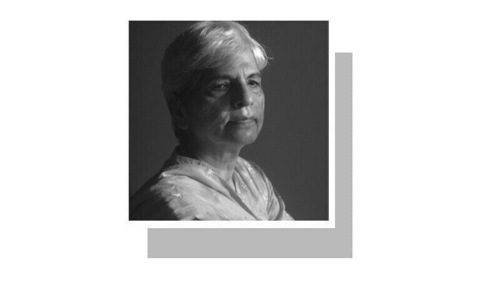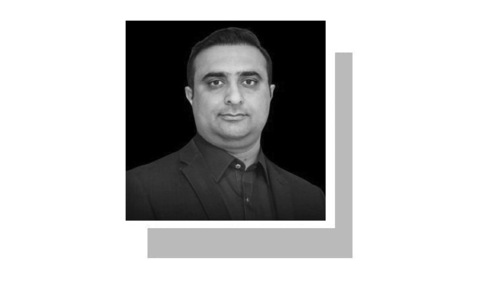
The role of the middle class and youth in the political economy is being redefined in many ways including the cherished long-term objective of policymakers to establish a middle-class economy.
In the midst of the current multiple crises in Pakistan, the bulging youth population is being empowered at the quickest pace ever by the latest technologies, technical skills and education. Eminent IT experts stress that business enterprises need to create a workforce that can solve new problems across a varied landscape of changing business services and solutions and issues in ever-evolving customer demands.
Global Gig Economy Index of Payoneer has ranked Pakistan among the top ten fast-growing countries in freelance earnings including the USA, the UK, Brazil, Ukraine, India, Bangladesh, Russia and Serbia. About 70 per cent of the freelancers are under 30, most of them having acquired technical training and education. Instead of looking for scarce decent jobs, they are opting for an independent, self-employed career.
Freelancers are stated to be among the local application developers and a major driving force behind IT companies and the growth of the computer software sector in Pakistan. There are approximately 3,000 registered local companies involved in a variety of application developments for domestic and corporate use. Just four-month freelancing courses, launched at a university for computer science students, enables them to earn enough to meet their expenses and pay fees.
Amids the political frenzy that can potentially empower the middle-income group, the daily rural wage earners and low-income salaried groups are also making renewed and concentrated efforts to rise upwards
Pakistan has also seen massive improvements on the commerce and business front for short-term operational excellence but business enterprises are yet not engaged in transformational change for long-term fruitful results, says Systems Ltd CEO Asif Peer.
Central bank data for Oct-Dec 2021 shows that the value of e-banking transactions stood at Rs33.4 trillion compared to Rs46.7tr paper-based transactions. Volume-wise e-banking transactions were recorded at 400m, exceeding paper transactions at 101.4m.
To be competitive, experts believe that companies need a robust future work transformation strategy focused on empowering employees to develop their skills and stay relevant in a fast-moving digital agile environment.
The role of the middle class in the economy in Pakistan is also finding expression in politics. Analyst Mosharraf Zaidi says “Pakistan was a global pioneer in digitally fueled amplification of protests with the power to take down power brokers and even governments.” Imran Khan is drawing huge crowds with the active participation of the middle classes and the youth.
The key political question facing the middle class however is: will these street protests lead to their political empowerment as in the case of technology-driven careers? They have put blind faith in PTI Chairman Imran Khan to deliver transformational change with a complete absence of focus on the vision, strategy, programme, policy or plan of action needed to pull the economy out of the deep-seated crises and to put it on an independent path to broad-based development.
If the PTI wins the elections, it will once again be put to a critical test, confronted by the dominant status quo. In his speech at Jhelum city on May 10, Imran Khan claimed that it is the PTI and the army that could keep Pakistan united. The immediate future of middle-class politics is a bit hazy at this point. It may be however conceded that the MQM-P, a middle-class party seeking local government autonomy, has seized the opportunity in these troubled times to advance its agenda.
The daily rural wage earners and low-income salaried groups are also making renewed and concentrated efforts to join the ranks of the middle class. Random examples show that uneducated driver Razzak’s daughter has secured a PhD degree and matriculate driver Abu Bakar’s brother is a practising lawyer in Karachi. Both drivers are from poor families from the neighbouring villages in Tharparkar and belong to the salaried class. They work in Karachi.
Rural wage workers are generally paid less than counterparts in urban areas, according to the working-class people hailing from the countryside, now working in Defence Housing Society, Karachi. From the point of view of workers, at least two positive emerging trends are noticeable in the country’s rural labour market.
While the daily or contract agricultural workers may not be formally organised, they are fully aware of the prevailing wage rates (where they work and from where they come from) and try to improve their compensation by tactful bargaining, hard-pressed to make a living owing to the persistent double-digit inflation. They ask questions about specifics of the piece of work offered and settle the compensation they would get before accepting any assignment. In a particular area, workers informally keep each other informed about the wage rates and the hike in prices of food and other essential items.
In rural areas where families are supported by bread earners working in the country’s urban centres like Karachi or the Middle East, the bargaining position of rural workers is enhanced. For example, the minimum daily wage is stated to be the same for Peshawar and neighbouring villages — Rs1,000 per day.
In Bhakkar, (Punjab) daily wage workers on the agricultural farms get a minimum wage of Rs700 per day, Rs100 less than their counterparts in the city.
In Tharparkar, Sindh, labour is also hired on a contract basis — as elsewhere in the country — for harvesting crops, whenever required, on a per-acre basis and may be paid in cash or kind, say, specified bags of wheat or any other crop depending on the market price of the commodity. This group of landless workers seeks the best possible bargain.
The daily wage of a mason in Karachi is Rs1,500 and that of the unskilled co-worker is Rs1,000. In a Tharparkar village, the mason gets Rs1,000 and his co-worker Rs600 per day plus food, tea and even cigarettes. Given the changing environment of work, wage earners are gaining confidence that they can improve their livelihood by themselves.
Published in Dawn, The Business and Finance Weekly, May 16th, 2022














































